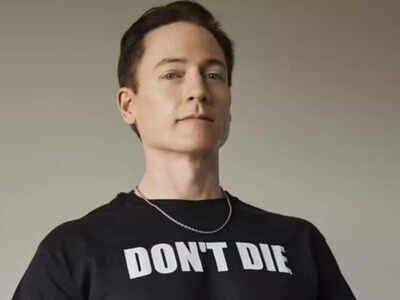Anti-aging entrepreneur Bryan Johnson takes magic mushrooms to explore life and death: ‘It felt like another…’ |

When it comes to exploration, humans have always been relentless. From peering into the farthest galaxies to unlocking the deepest secrets of the human genome, our curiosity has stretched across both space and time. For centuries, we have sought to understand not just where we come from, but how far we can go — especially when it comes to our own bodies. From experiments in longevity and disease prevention to the quest to slow, or even reverse, ageing, one question has continued to captivate scientists and dreamers alike: how long can humans truly live?
Bryan Johnson ‘s psychedelic experiment to face mortality
For Bryan Johnson, the answer to that question has taken him somewhere unexpected — into the world of psychedelics. In his latest self-experiment, Johnson consumed psilocybin, the active compound in magic mushrooms, during a guided experience meant to help him confront life, death, and consciousness.Johnson, who has spent years chasing the dream of biological immortality through science and data, said he wanted to explore what lies beyond the physical boundaries of the body. “It wasn’t about escaping reality,” he explained, “but about understanding it — about seeing the part of existence that can’t be measured in blood tests or biological age.”He described the experience as both emotional and profound, saying it felt like meeting “another version” of himself. The session reportedly left him reflecting on mortality not as something to be defeated, but as something to be understood.
A millionaire’s quest for immortality
Bryan Johnson first made headlines not for drugs or philosophy, but for data. The founder of the payment firm Braintree, which he sold to eBay for $800 million, Johnson later devoted his wealth to a single purpose: slowing down the biological clock. His ambitious self-experimentation project, known as Blueprint, involves everything from strict vegan diets and stem-cell therapies to advanced medical monitoring — all in the hope of achieving biological rejuvenation.But recently, Johnson’s pursuit of longevity has turned inward. During a podcast interview, he described a deeply introspective experience after taking psilocybin, the psychoactive compound found in magic mushrooms. “It felt like another version of me,” he said, recalling moments of confronting both his own mortality and the meaning of consciousness itself.
Psychedelics and the science of self
Psychedelics like psilocybin have seen a resurgence in medical research, particularly for their potential to treat depression, anxiety, and existential distress. Studies from institutions such as Johns Hopkins University and Imperial College London have found that guided psychedelic experiences can help people process fear of death and gain a deeper sense of emotional clarity.For Johnson, whose life is already a meticulously controlled experiment in physical survival, the experience represented something different — a confrontation with the one thing no technology can yet alter: the inevitability of death. “You can spend all your time optimising your biology,” he reflected, “but if you don’t understand what life and death mean to you, the numbers don’t matter.”
The blurred line between science and spirituality
Johnson’s mushroom journey isn’t an abandonment of science but rather an expansion of it into territory long considered philosophical or spiritual. Researchers studying psychedelics argue that these compounds can induce “ego dissolution” — a temporary breakdown of the self that allows people to perceive existence from a more universal perspective.In that sense, Johnson’s experiment mirrors a broader cultural shift. As longevity research advances and society grapples with the ethics of extending human life, more people are turning to ancient tools, like psychedelics, to explore the nature of existence itself. It’s a reminder that even in an age of AI, gene editing, and billion-dollar biohacking, the oldest human questions still linger: what does it mean to be alive, and what happens when life ends?
Life, death, and the pursuit of meaning
For all his data-driven ambition, Bryan Johnson’s recent revelations suggest that longevity isn’t just about adding years to life, but adding meaning to years. His mushroom trip, he says, wasn’t an escape but an inquiry — an attempt to balance the precision of science with the mystery of human experience.As research into psychedelics and longevity continues to evolve, Johnson’s journey underscores a paradox at the heart of modern health science: that understanding life’s limits may be just as important as pushing them.In his words, “The goal isn’t to live forever. It’s to live fully — and to understand what that really means.”





